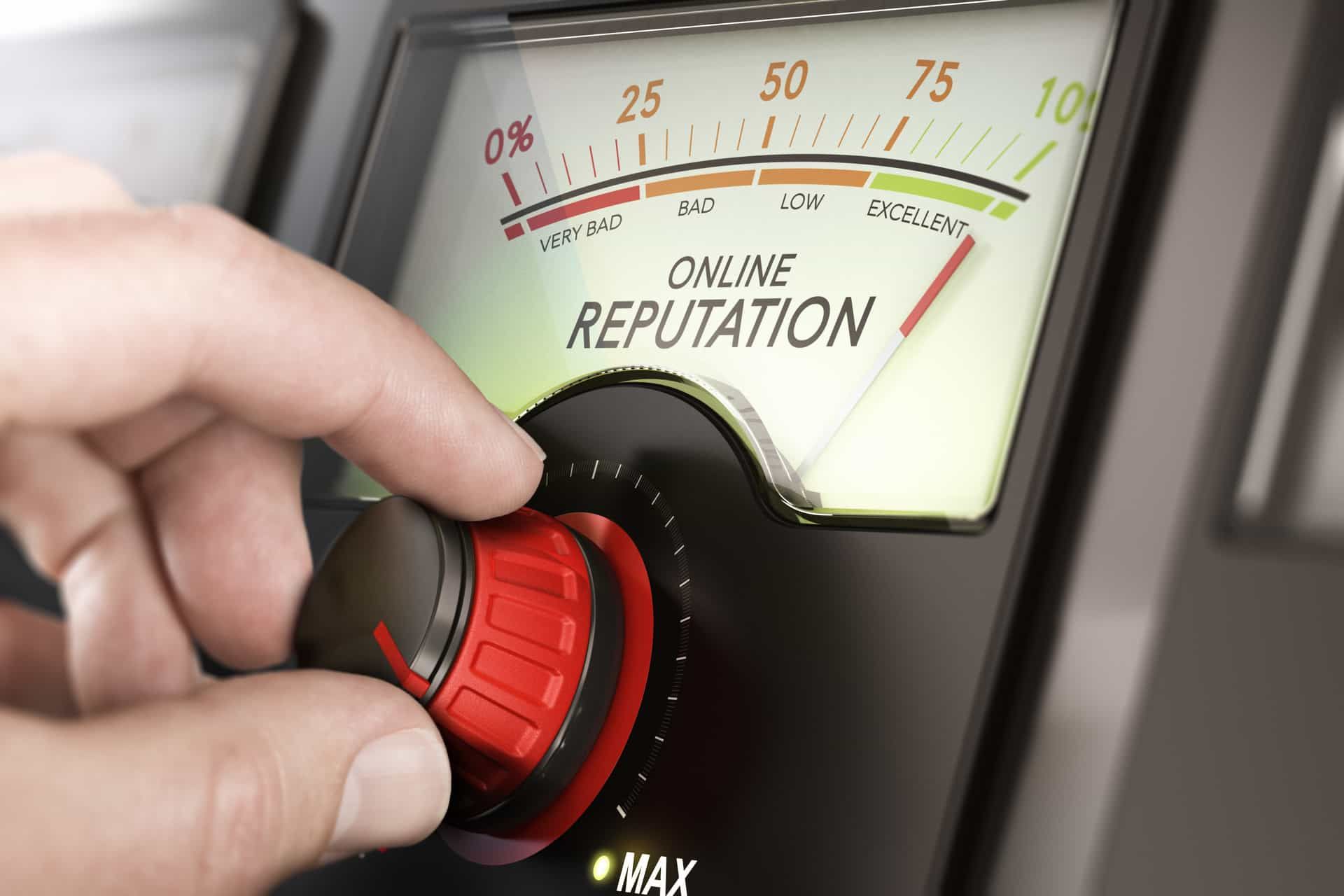Reputation Management for Businesses: Essential Tips & Strategies
In the past, TV and newspaper ads were the main ways to influence what people bought. That’s changed now. People have more control and usually decide where to spend their money by looking up information online.
This means your business needs a good online image to succeed. But many business owners don’t know how to build their online reputation and increase brand awareness at the same time.
The good news is there are proven ways to improve your online reputation. We’ll show you the best ones if you keep reading.
Why a Good Online Reputation Matters
Not sure if you should focus on reputation management? Here’s the truth:
Most customers start their buying journey by checking search engine results. This means how people see your brand online affects their future choices. So, you need to manage your reputation to boost your sales.
What Affects Your Online Reputation?
Your online reputation is shaped by almost everything written about your business, including:
- Online reviews
- Social media comments
- News articles
- Listings in business directories
Managing these things may seem like a lot of work, but it’s worth it. A good online reputation can increase sales, strengthen your brand, and improve your search engine ranking. Plus, it builds trust, which is valuable in the long run.
Effects of a Bad Reputation
Managing your reputation is even more important if you face negative feedback. Bad reviews or a crisis in the news can hurt your brand image and reduce your revenue.
Data shows that negative reviews or news can stop most customers from buying from a business. Just one bad article at the top of search results can make you lose nearly 22% of customers.
While big companies like McDonald’s may not be affected by a few bad reviews, small local businesses can suffer a lot. A bad reputation can slow them down or even put them out of business.
Basics of Managing Your Online Reputation
There are different ways to manage your business reputation, but the basics usually involve:
- Checking your online reputation by looking at search results and social media
- Creating websites, social media profiles, and blogs
- Making positive content like press releases or blog posts to engage your audience
- Promoting good content
- Managing and getting online reviews
The good news is that managing your reputation often overlaps with other digital marketing practices like SEO. You probably already have the tools you need to manage reviews, which can also help your search engine rankings.
Key Reputation Management Strategies
So how do you start? Here are some key strategies:
1. Google Business Profile Management
Google lets you claim your business listing and add important information. Keeping your Google Business Profile updated with photos and details can improve your online image.
- Claim Your Profile: Make sure you have claimed your Google Business Profile. This allows you to manage and update your information.
- Update Regularly: Keep your business hours, contact information, and photos current. Regular updates show that your business is active and engaged.
- Respond to Reviews: Take time to respond to both positive and negative reviews. Thank customers for positive feedback and address any issues raised in negative reviews politely and professionally.
2. SEO
Search engine optimization (SEO) means making your web pages rank higher in search results. Google and other search engines want to show users the best results, so optimizing your site for both on-page and off-page factors is essential. Local businesses should focus on local SEO to reach customers nearby.
SEO is crucial for getting your business noticed online. Here are some basic SEO strategies:
- Keyword Research: Find out what keywords potential customers are using to search for businesses like yours. Use these keywords in your website content.
- On-Page SEO: Make sure your website is user-friendly and easy to navigate. Use keywords in your titles, headings, and content.
- Off-Page SEO: Build backlinks from other reputable websites. This can improve your search engine ranking.
3. Social Media Marketing
Social media sites like X (formerly Twitter), Instagram, and Facebook are important for your brand’s reputation. These platforms help you connect with customers and share promotional content easily.
- Be Active: Post regularly on platforms like X, Instagram, and Facebook. Share updates, promotions, and engaging content.
- Engage with Followers: Respond to comments and messages. Show that you value your customers’ feedback.
- Use Hashtags: Use relevant hashtags to increase your reach and attract new followers.
4. Review Management
Getting good reviews is important, but you also need to handle fake or bad reviews. Encourage happy customers to leave positive reviews and have a plan for responding to negative ones. Unhappy customers are often more vocal, and a few bad reviews can turn into a bigger problem if not managed.
The easiest way to manage reviews is with a platform like ReviewArm. This software lets you track reviews from different sites in one place. You’ll get notifications for new reviews, so you can respond quickly.
ReviewArm also helps you send automatic review requests to customers after a sale. This can help you get more positive reviews to balance out any negative ones.
- Encourage Positive Reviews: Ask satisfied customers to leave positive reviews. This can help balance out any negative feedback.
- Monitor Reviews: Use a review management tool like ReviewArm to keep track of reviews across different sites.
- Respond Promptly: Respond to reviews quickly. Address any issues raised in negative reviews and thank customers for positive feedback.
5. Content Creation and Promotion
Creating and promoting positive content about your business can help improve your online reputation. Here’s how:
- Blog Posts: Write informative and engaging blog posts about your business and industry. Use keywords to improve your SEO.
- Press Releases: Share news about your business, such as new products or services, in press releases.
- Social Media Content: Share your blog posts and press releases on social media. Use eye-catching images and engaging captions to attract attention.
Start Managing Your Reputation with ReviewArm
Managing your business’s online reputation is crucial for success. By following these strategies, you can improve your online image, attract more customers, and grow your business. With tools like ReviewArm, you can make the process even easier. Start boosting your online reputation today by implementing these simple tips.
Boost your online reputation today—contact us to learn your next steps.
Disclaimer: The information on this website and blog is for general informational purposes only and is not professional advice. We make no guarantees of accuracy or completeness. We disclaim all liability for errors, omissions, or reliance on this content. Always consult a qualified professional for specific guidance.








